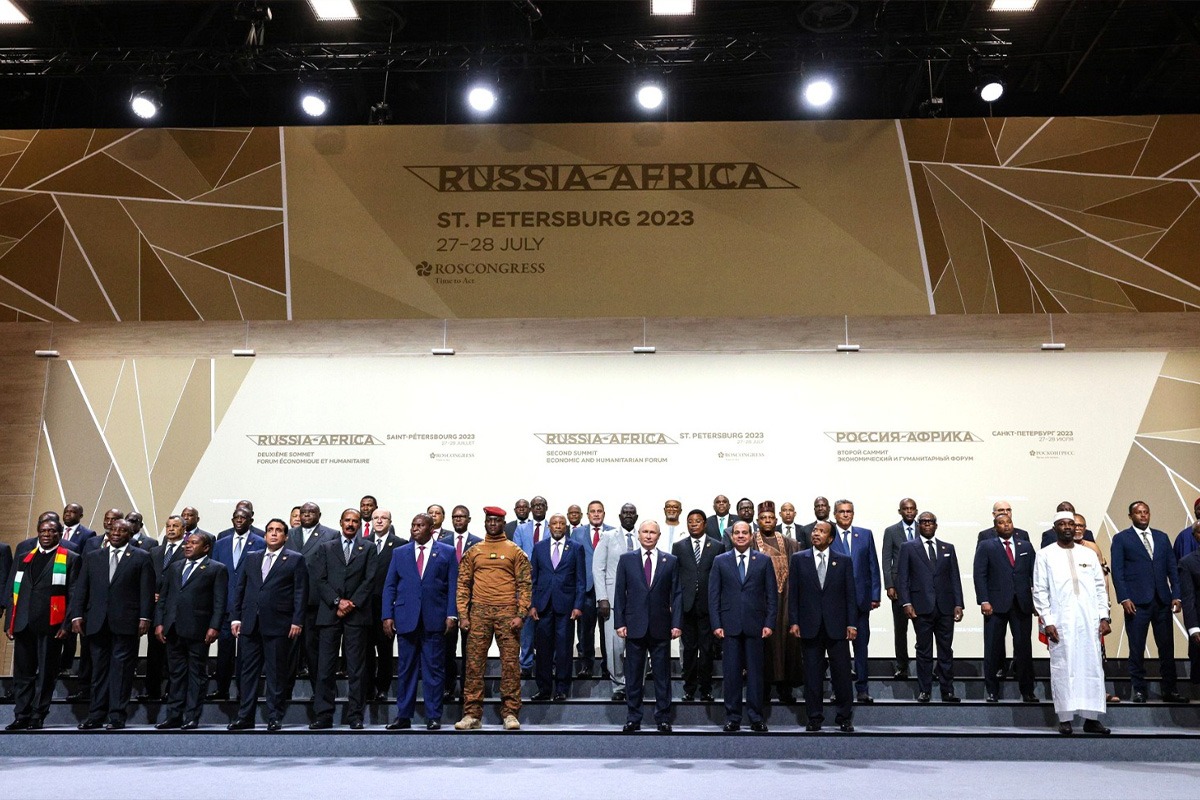NEW DELHI: Despite Western sanctions and attempts of isolation, Russia has deftly strengthened its ties with African nations, forging new trade and security agreements. At the recently-held Russia-Africa summit in Saint Petersburg, Russia’s growing influence in the continent was evident, with 17 African presidents and prime ministers in attendance, representing 49 out of the total 54 African countries.
President Vladimir Putin, addressing the summit, emphasized Russia’s increasing attention to Africa, signaling a steady growth in engagement. The summit bore fruit in the form of four declarations on arms race prevention in space, cooperation in information security, and strengthening collaboration in combating terrorism. Moreover, key African bodies signed a development MoU, fostering opportunities for mutual growth and cooperation.
READ MORE: Russia to launch E-Visa for Indian passport holders from August 1
Despite the ongoing strain on resources due to the Ukraine conflict, the Kremlin has pledged over $90 million to alleviate the debt burden of African countries, and Moscow has written off a staggering $23 billion of their debt. African countries’ debt issues have been resolved by 90 percent, a significant step towards fostering economic stability and cooperation.
Ahead of the summit, the world’s largest diamond producer, Alrosa, announced its intent to set up operations in Zimbabwe, a nation that has also been adversely affected by unilateral Western sanctions. Russia is further intensifying its diplomatic presence in Africa by expanding its network of Russian centers of science and culture and assisting African states in establishing embassies and consulates in Russia.
Beyond official engagements, analysts speculate that Russia may have played a role in the recent military coup against President Mohamed Bazoum, who has been perceived as pro-Western. Notably, French forces were expelled from Niger following civilian protests, potentially indicating a shift in the balance of influence in the region.
Amidst Western pressure, South Africa, a highly influential African country, has abstained from voting against Russia at the United Nations and has engaged in joint military exercises with the Russian Navy. Moreover, it has publicly criticized the US for its actions and has reportedly supplied weapons and ammunition to a sanctioned Russian ship.
READ MORE: UK sent military email meant for US to Russia ally Mali: Report
The strengthening ties between Russia and Africa are also evident in African leaders’ efforts to mediate between Moscow and Kyiv in hopes of ending the ongoing Ukraine conflict. Last month, South African President Cyril Ramaphosa led a delegation to both Moscow and Kyiv with a proposal to find a resolution, an initiative that President Putin is carefully considering.
Experts believe that Africa’s lingering suspicions towards its former colonizers in Europe and the UK may draw the continent closer to Russia. The promise of increased investment, food security, energy cooperation, military training, and equipment, along with a commitment to equal respect in a new multipolar world order, are factors contributing to the growing Russia-Africa partnership.










